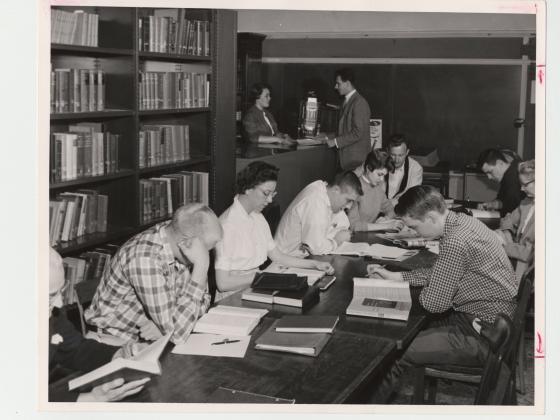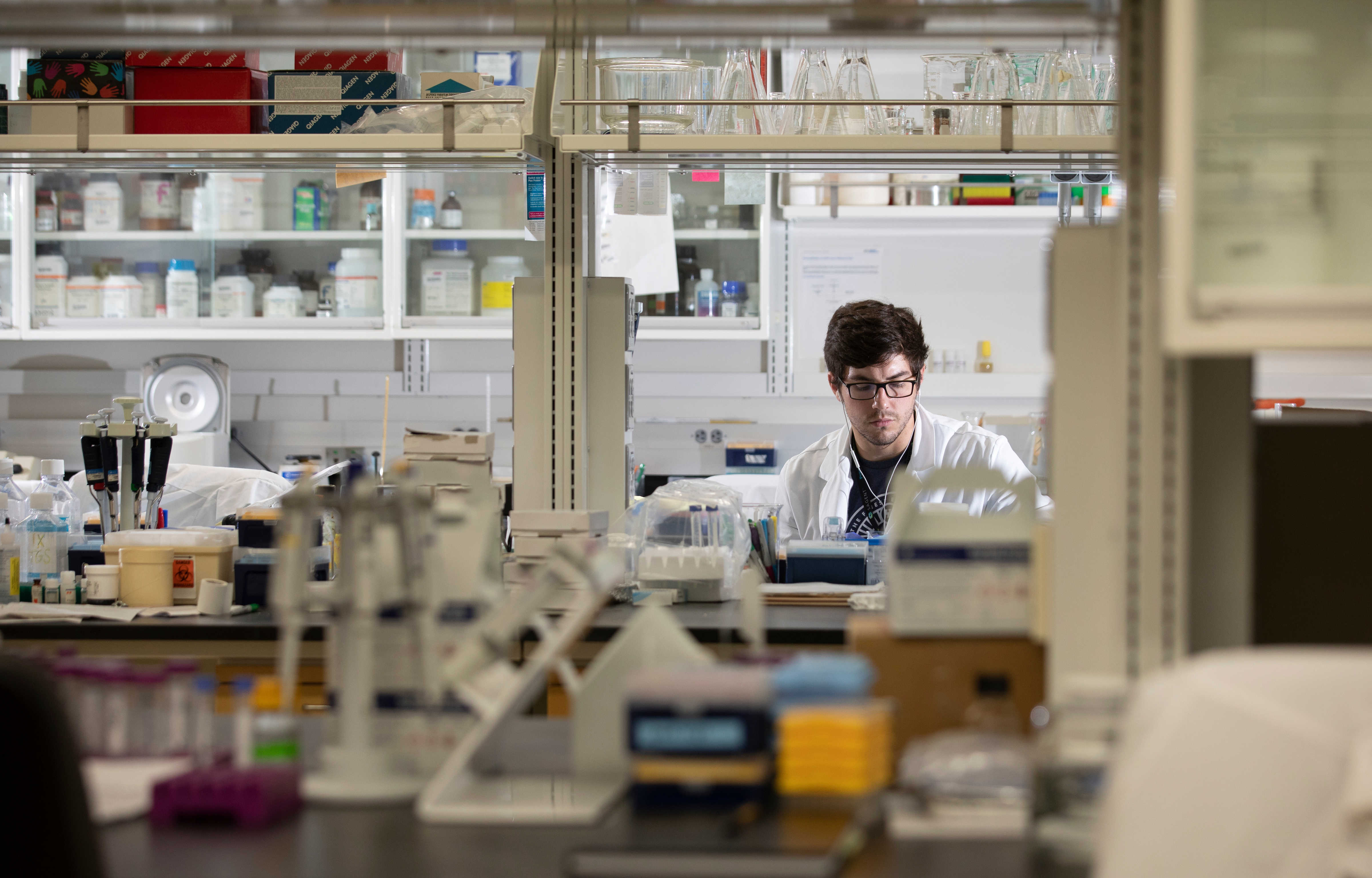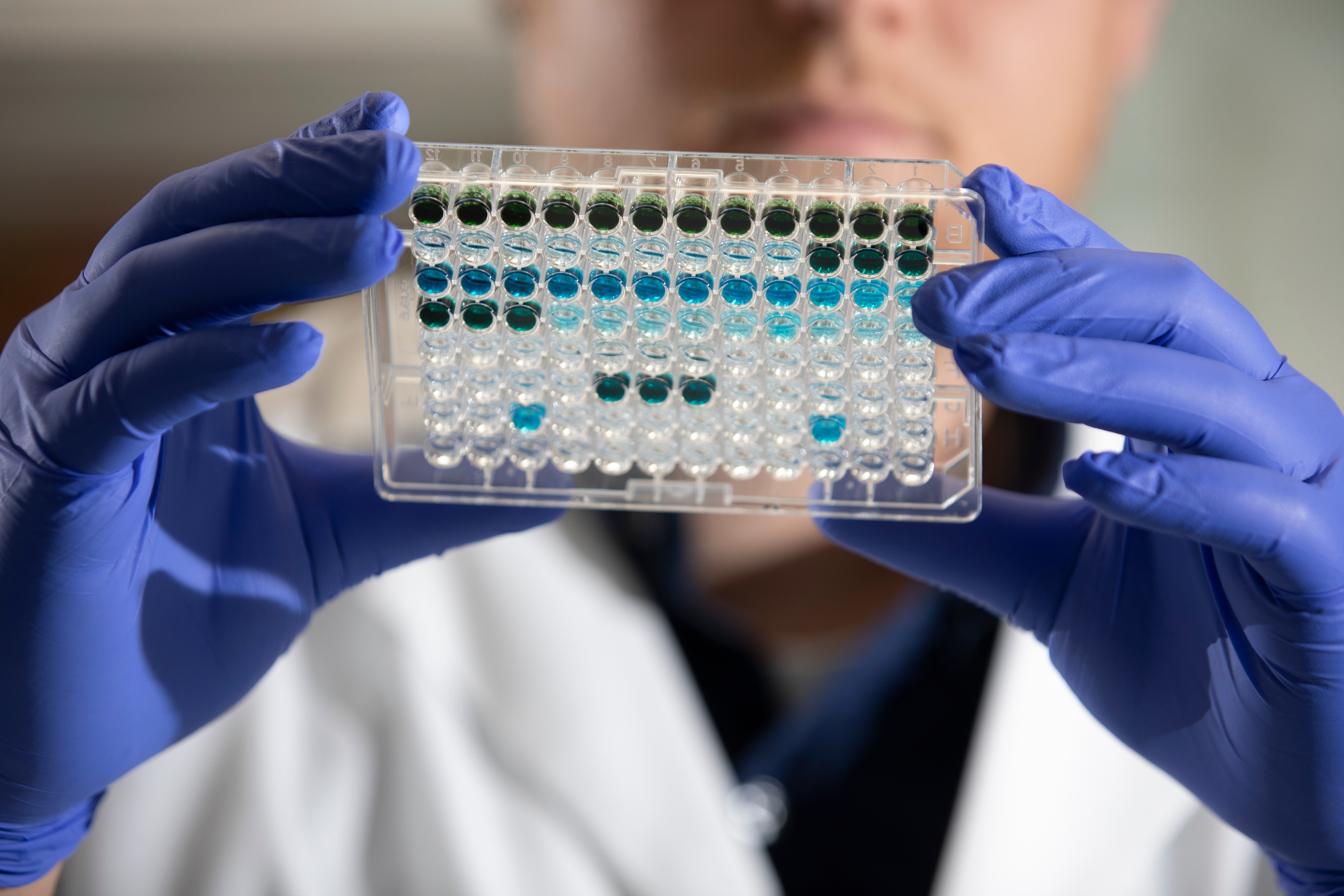A Storied Beginning
Founded in 1870, just five years after the University of Kentucky, the institution that would become the UK College of Pharmacy began as the Louisville College of Pharmacy. Modeled after the Philadelphia College of Pharmacy, it operated independently for more than 75 years.
The College officially became part of the University of Kentucky on July 1, 1946. However, it remained in Louisville until the summer of 1957, when faculty, staff, and students moved the entire College—box by box in their own vehicles—to the Lexington campus. The destination: a newly constructed building on Washington Avenue, later named for then-dean Earle P. Slone.
After the transition to UK’s main campus, the College of Pharmacy flourished. Its national reputation grew through groundbreaking programs and research that have consistently placed it among the top pharmacy schools in the country.
Pioneering Pharmacy Education
In the late 1960s, Dean Joseph V. Swintosky spearheaded the development of the College’s Ph.D. program in pharmaceutical sciences. Under his leadership, UK also became one of the first institutions outside California to offer the Doctor of Pharmacy (PharmD), which is now the standard degree for pharmacists nationwide. Swintosky’s tenure from 1967 to 1987 marked a transformative era for the college, positioning it at the forefront of pharmacy education.
As the college grew in the 1970s, it expanded beyond the capacity of the Slone Building. By 1980, programs and faculty were scattered across six campus buildings. Finally, in 1985, the College moved into a new facility on Rose Street. For 25 years, the Rose Street building served as the academic home for generations of pharmacists and pharmaceutical scientists.
During this time, UK pharmacy students achieved numerous accolades. Three were elected national presidents of the American Pharmacists Association (APhA) Academy of Student Pharmacists. The UK chapter was named APhA’s National Chapter of the Year in 2005, and UK students consistently led the nation in first-time pass rates on the NAPLEX pharmacy licensure exam.
Meanwhile, the profession of pharmacy itself was evolving. During the late 1980s and 1990s, pharmacists increasingly moved from behind the counter to active roles in patient care—a shift mirrored in UK’s educational approach.
Melody Ryan, who earned her B.S. in 1992 and PharmD in 1993, returned to UK as a faculty member after training at Duke University and completing a neuroscience fellowship at UK. Now a professor in the Department of Pharmacy Practice, she reflects on the personal and professional impact of her time at the College:
“As both an alumna and faculty member, I’ve seen firsthand how much we have evolved. My most cherished memory is watching the first class of the all-PharmD curriculum complete their degrees in 1999. We grew together—it was an incredible experience,” said Ryan, who also serves as Director of International Professional Student Education, and Assistant Provost for Global Health Initiatives.
Meeting the Moment
The pharmacy profession continues to transform, expanding in scope, integrating technology, and shifting toward direct patient care. The College has responded with innovation, while remaining grounded in its core mission: to prepare leaders in pharmacy practice and pharmaceutical sciences.
The College’s Doctor of Pharmacy program admits 140 students each year, selected through a competitive admissions process. As the healthcare system evolves, pharmacy educators are tasked with equipping graduates with clinical expertise, scientific knowledge, and the ability to lead change.
“Pharmacy is no longer just about dispensing medications—it’s about improving lives through direct patient care, research, and innovation,” said Interim Dean Craig Martin. “We’re committed to training pharmacists who are not only prepared for today’s challenges, but who will help shape the future of healthcare.”
Excellence in Research and Graduate Education
In addition to professional education, UK’s graduate and research programs have also achieved national recognition. A notable milestone came in 1992, when UK researcher Anwar Hussain patented Stadol, an intranasal spray for migraine relief. Marketed by Bristol-Myers, Stadol was a direct result of Hussain’s pioneering work in drug delivery, which led to more than 50 patents and $14M in revenue for UK.
That legacy continues today. Alumnus and past professor Dan Wermeling developed a nasal spray form of naloxone through his startup, AntiOp Inc., advancing emergency treatment for opioid overdose. Since 1998, the College of Pharmacy faculty has created 15 startup companies.
The Department of Pharmaceutical Sciences offers PhD training in drug discovery, development, clinical and experimental therapeutics, and pharmaceutical outcomes and policy. Ten to twelve students graduate from the program each year.
“We’ve broadened our graduate training to include more emphasis in areas like medicinal chemistry and policy,” said David Feola, PharmD, PhD, assistant dean of graduate studies and professor of pharmaceutical sciences. “Today’s scientists must be technically strong but also adaptable, collaborative, and entrepreneurial.”
A New Home for a New Era
By the early 2000s, the College had once again outgrown its space. With enrollment soaring, particularly during a national pharmacist shortage, Dean Kenneth B. Roberts led efforts to secure funding for a new facility. Despite budget constraints and a challenging economic environment, support from alumni, legislators, and UK leadership made it possible.
Construction of the BioPharm Complex at 789 South Limestone began in 2007, and by 2010, faculty, staff, and students had moved into one of the most advanced academic pharmacy facilities in the world. Later, the building was named in honor of former UK President Lee T. Todd, Jr.
Looking Ahead
Under the leadership of immediate past dean R. Kip Guy, Ph.D., the College of Pharmacy expanded its academic offerings to meet the evolving needs of the pharmaceutical and healthcare industries. One of his most significant accomplishments was the development of the College’s first undergraduate degree program in more than 25 years—the Bachelor of Science in Pharmaceutical Sciences.
Designed to provide a strong foundation in the science behind drug discovery, development, and delivery, the new program opens additional pathways for students interested in careers in the pharmaceutical industry, research, regulatory affairs, and beyond. The first cohort of students will enter the program in Fall 2025.
This bold step reflects the College’s ongoing commitment to innovation in education and workforce development, ensuring that UK College of Pharmacy continues to lead in shaping the future of pharmacy and pharmaceutical sciences.



